By: Rina Asrina
Have you ever wonder where we came from? How was Muslim, Christian, and Jews used to lived side by side in the past, eventhough the war will always be its behind the scene. But we have had done the peace side by side altogether. When I was wondering those things, i received an email from one of Samaritan descendant here in Indonesia. His email brought me to Surabaya, an area of 664,25 kilometres away from Jakarta where I live. I tried to figured out this Samaritan term and found something amazed for me as Muslim, for us as human who has the same ancestor.
Jews called the Samaritan’s faith as “imperfect adherence to Judaism” and that’s why the Samaritans were despised by ordinary Jews. Rather than contaminate themselves by passing through Samaritan territory, Jews who were traveling from Judea to Galilee or vice versa would cross over the river Jordan, bypass Samaria by going through Transjordan, and cross over the river again as they neared their destination.
The Samaritans are adherents of Samaritanism, a religion closely related to Judaism. Samaritans believe that their worship, which is based on the Samaritan Pentateuch, is the true religion of the ancient Israelites from before the Babylonian captivity, preserved by those who remained in the Land of Israel, as opposed to Judaism, which they see as a related but altered and amended religion, brought back by those returning from the Babylonian captivity.
Also Read: UNICEF Says Israel Blocking Entry of Syringes and Baby Formula Bottles into Gaza
In the past, many Samaritan people converted to Islam. They lived in peace under Muslim role. Their ancient religion are relative connected with Muslim. Therefore, here’s my interview with Yaqob Bar-Karoza, a Samaritan Christian who conserves Samaritan ancient life in his family. He married a Chinese-born Indonesian and has two daughters.
- What is Samaritan?
Yaqob Bar-Karoza: Samaritan is an English word that it comes from the Latin. During the Roman empire, they used that words to describe the people that lived in the northen territories of Israel (occupied land in Palestine) spesifically the place that called Samaria. But actually we dont call ourselves as Samaritan, we call ourselves as Shamerin (taken from ancient Hebrew words), it means the keepers ot the guardians of Torah. We kept the Torah. So who are we etnically, we are of the same family as Jews. But we are not Jews. Our great grand father way back was Abraham and we also come to the son Isaac, but instead of coming from the southern hebrew tribes (Yahudiin), we came from northern tribes, from Joseph. My ancestor came from him. We came from different branch of the family, but we are related.
The reason why we are so few today, less than one thousand arround the world, is because of persecution. In ancient times we had kingdom of Israel in north, and the Jews has kingdom of Judea in South, and we (Jews and Samaritan) had a war alots. Which is sad because we are family. Eventually what happened was a foreign group of people obviously Syrian destroyed our kingdom. After centuries, few people remains. But we are still exist. When Roman took over Christianity, they persecuted our people, but we survived under Muslim role for thousands years. We lived in peace in Palestine. Our homeland in Palestine and Nablus. My family has been living outside Israel for thousand years. We call it diaspora. And I’m a part of it. In Israel today there are about eight hundreds Samaritan. They are split between two cities. Palestine is a holy place for us. So when I heard Palestinian were persecuted it bothers me. Genetically, anywhere from 20 to 40% of the Palestinian population was historically Samaritan who converted to Islam. Most of the Samaritan in Israel, practice a very ancient religion before Torah was changed. There’s been some changes.
- What do Samaritan believes?
Yaqob Bar-Karoza; There’s an ancient holy book we have it that hasn’t been changed for about three thousand years. But it has let us to live an ancient life. Most of Christian used the Torah of Jews nowadays. As Christian we believe in God, we do also Sujood. We do ablusion (wudhu in Islam), we do a lot similar thing as Muslim do. That’s the ancient way. We also still speak the ancient language (Hebrew ancient language). We believe Isa Al Masih (Jesus) as a prophet, a man, but as what Sufi concept says “ittihad”, Isa Al Masih has a gift from God, like God filled him with His spirit.
Also Read: WHO Evacuates Nearly 8,000 Patients from Gaza
- So is Samaritan a part of Christian or something else?
Yaqob Bar-Karoza: Traditionally, there was Samaritan Christian churches that one of them has established by Jesus. He went to Samaria before and built a community there. But during the Roman times, after church captured, everything was wiped out. Our people forced to follow catholic church. In modern times, we are free in America. And my family trying to restore our ancestor and culture, and that’s what I’m doing in Indonesia here. Cause we are save here, and our culture relative similar with Muslim life.
- How many Samaritan in Indonesia as far as you know?
Yaqob Bar-Karoza: Just my family. Usually wherever we go, there’s only few of us. We are scattered, but we’re still around.
- I heard there is “Shahada” in Samaritan believe, is that true?
Yaqob Bar-Karoza: Yes we have it. I do it all the time. In fact when I do my daily offering prayer, I say it up to seven times. We always begin with statement of praise, “shoobkha l’Elaha” (Aramaic words) means praise to God, and also our Shahada words in Hebrew says “there’s no God but one” , that’s how we refer Him as eternal one. and I keep saying it over and over. Similar to Islam. And we also do sujood.
- How many times you pray at a certain time?
Yaqob Bar-Karoza: There’s two official prayers, and third is added on a day Sabbath. The holy time for us began in Friday evening. We follow lunar calendar and the new day (in lunar) begin with the sunset, so we begin our Sabbath in Friday evening and ended on the next day sunset. During the prayer, we sing ancient songs in Aramaic and Hebrew. On the day time of Sabbath we have regular prayer in the morning, and in the noon we came and bring out the real Torah to the Masgada (Mosque in Islam from an Imaam place, a sacred place. I’m a Christian and I’m still doing this ritual.
Also Read: Satellite Images Show Over 1,500 Buildings Destroyed in Gaza Since Ceasefire Began
- What other ritual of Samaritan?
Yaqob Bar-Karoza: In ancient times there was a sacrifice ritual. Now we only slaughter a lamb during the Passover day (Easter). For us, we still eat lamb, but we don’t have to slaughter it on the day, nowadays its hard to slaughter so we buy the meat and cook it. It’s for remembering and respect the tradition in the past.
The story of slaughtering lamb back in the story of exodus. In the Torah, when our people were slaves in Egypt, what God did to bring us out was he had ten plagues basically cause Egyptian society crumble. And the tenth of the worst that God punished the Egyptian was the death of the first born and that what happened there was God told us, “I’m going to send down death angel and he’s gonna through all the city the only way he’s gonna know if you’re my people is to have blood all over your door. So all of you sacrifice a lamb take its blood and swab it to your closed door. And then you eat the lamb roasted and eat it. Don’t leave it remains till the morning.”
- What’s the similar stories in Samaritan and Muslim?
Yaqob Bar-Karoza: There are many things. We preserve about the story of Isa Al Masih , when he was younger he takes a clay that he’s been playing with and form it into groups and he brings in the life. AlQuran has that story, while bible lost it. We still have it in our books.
Yaqob Bar-Karoza: The Samaritan version was written by Abisa, he is a priest and the great grand son of Aroon, the brother of Moses. He is the first one who wrote the whole Torah and one major document. And he put it at mount Gerizim, north of Israel, not in Jerusalem. The Jerusalem was not the city of Israel until the time of David, it belong to Pagan people. But Jews, because of they hate us, they changed the Torah.
- How do you keep the ancient Hebrew language till today?
Yaqob Bar-Karoza: I grew up ironically, one foot in Sinagog. There’s no Samaritan Sinagog in America, so I went to Jews Sinagog and learnt Hebrew there. When I established my family’s tie in Samaria in 2012, some of the differences shocked me because I found its different with the real ancient language. And my Samaritan friend in Israel gave me the copy of real Torah.(R04/R03)
Mi’raj Islamic News Agency (MINA)
Also Read: Israeli Forces Kill Palestinian in Jabalia Refugee Camp, Gaza
Also Read: Three Killed, Several Injured in Ongoing Israeli Attacks Across Gaza





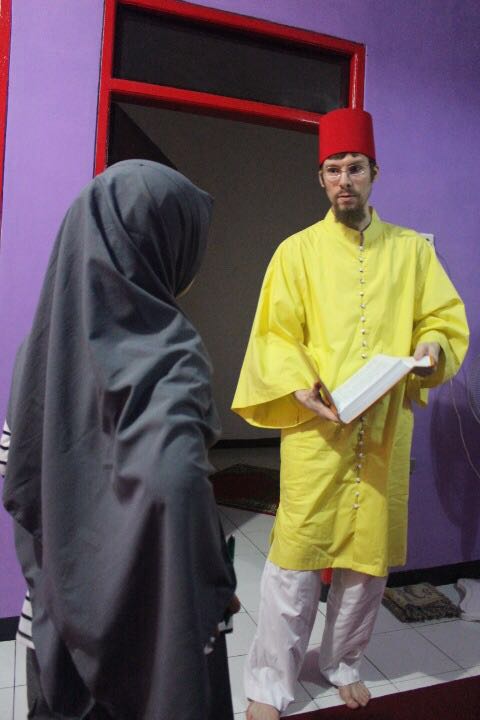



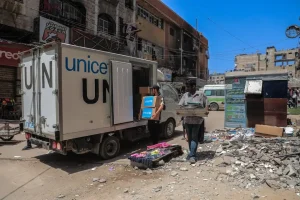






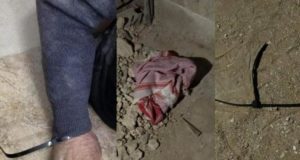
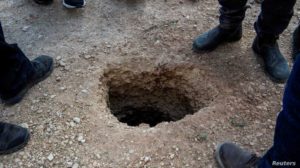
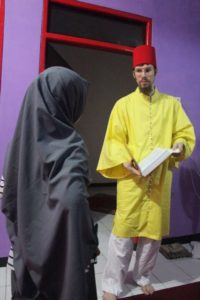
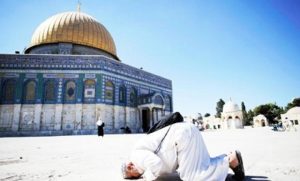






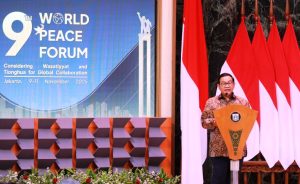






 Mina Indonesia
Mina Indonesia Mina Arabic
Mina Arabic